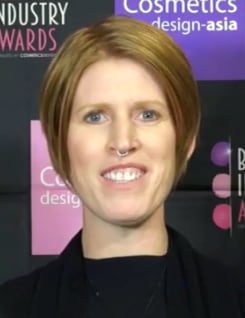The eleven companies involved thus far have pledged to “[work] towards using 100% reusable, recyclable or compostable packaging by 2025 or earlier,” according to the group’s dot-org site.
L’Oréal and Unilever have signed on to the Ellen MacArthur Foundation’s initiative, as have packaging supplier Amcor; the personal and home care brand ecover; and beauty retailers Marks & Spenser and Walmart.
Everyone involved recognizes how important it is that this project is a group effort: “It is welcome news that many other major companies are making their own commitments to address ocean plastic waste,” Paul Polman, CEO of Unilever, says in his remarks on newplasticseconomy.org.
Polman goes on to point out that, “as a consumer goods industry, we need to go much further, much faster, in addressing the challenge of single use plastics by leading a transition away from the linear take-make-dispose model of consumption, to one which is truly circular by design.”
The personal care company is positioning itself as a leader in the environmentally responsible undertaking: “Unilever announced its commitment to help transform global plastic packaging material flows by: ensuring all of its plastic packaging is reusable, recyclable or compostable by 2025; increasing its use of recycled plastic content in its packaging to at least 25% by 2025 (against a 2015 baseline); publishing the full ‘palette’ of plastics materials used in its packaging by 2020 to help create a plastics protocol for the industry; and helping tackle the industry-wide sachet waste issue, by investing in proving, and then sharing with industry, a technical solution to recycle multi-layered sachets – CreaSolv.”
Packaging
Companies like Unilever and their brands certainly can’t reinvent the entire plastics supply chain on their own. Package makers are key to the success of the New Plastics Economy.
Here, Melbourne, Australia – based Amcor is stepping up to the challenge: “Amcor is leading the development and manufacture of packaging that is better for the environment, customers and consumers – by being the first global packaging company pledging to develop all its packaging to be recyclable or reusable by 2025, significantly increasing its use of recycled material, and helping drive consistently greater recycling of packaging around the world.”
Retail
Retail players in Europe and the US are moving to take action in support of The New Packaging Economy too.
“Marks & Spencer announced that all its plastic packaging in the UK will not only be 100% recyclable, but also 'widely recycled' in the UK by 2022. It will work to eliminate packaging that strays into the environment (particularly oceans) and actively design out packaging parts that can’t be reused or recycled. It will introduce products with reclaimed social plastics as a component, providing positive social benefit to the communities from which the materials are sourced. In addition, M&S will assess the feasibility for all its plastic packaging to be made from one polymer group by 2025 to reduce consumer confusion and to improve recycling."
And here in the States: “Walmart announced that 100% of its Private Brand packaging will be recyclable by 2025 and aims to reduce environmental and social impacts of private brand and national brand packaging. Beyond its own organization, Walmart encourages suppliers to participate in Project Gigaton, by setting goals to improve packaging optimization, recyclability, and the use of recycled and sustainably sourced materials to reduce greenhouse gas emissions. And the Walmart Foundation supports the Closed Loop Fund to help improve access to recycling and strengthen the recycling infrastructure.”
Big beauty
These sorts of socially responsible endeavors are nothing new for L’Oréal. The multinational has done a lot over the years to limit C02 emissions, operate a more sustainable business, and support local energy use reduction projects.
As a signatory to the New Plastics Economy project, “L'Oréal commits that all of its plastic packaging will be rechargeable, refillable, recyclable or compostable by 2025. This is in line with and a continuation of L'Oréal’s efforts over the past years working towards the continuous improvement of the environmental and social impact of 100% of its new products by 2020, as part of its "Sharing Beauty With All" sustainability program.”
Learn more about the New Plastics Economy here.
---

Deanna Utroske, CosmeticsDesign.com Editor, covers beauty business news in the Americas region and publishes the weekly Indie Beauty Profile column, showcasing the inspiring work of entrepreneurs and innovative brands.
